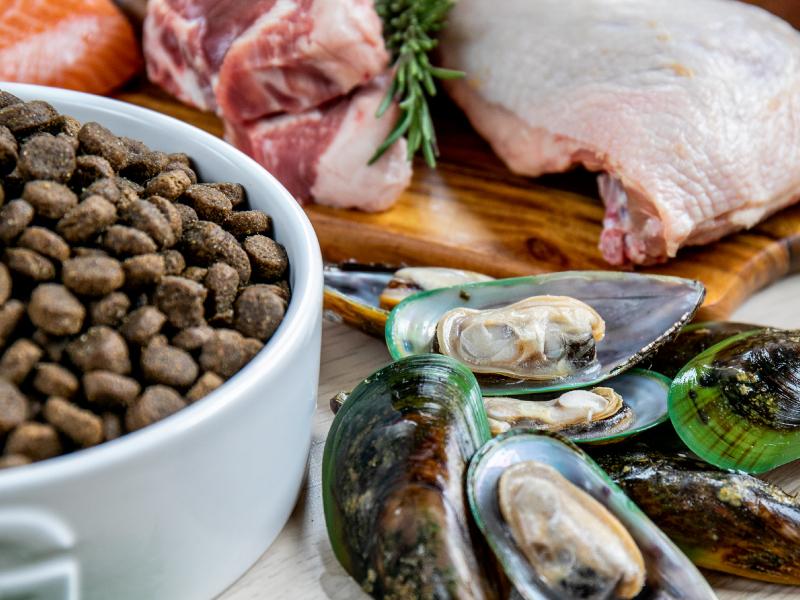Your cart is currently empty.
TLC Pet Food lists 6 things that might be affecting your pet's digestive health. Read to learn more about common causes of loose stool in pets.
TLC Pet Food lists 6 things that might be affecting your pet's digestive health. Read to learn more about common causes of loose stool in pets.
By the time you bring your puppy home, they’ll be leaving the only environment they’ve ever known! This is a major change for a little pup to deal with, and it can sometimes lead to a few weeks of looser stool. Providing a caring environment and keeping a watchful eye is your best bet in this situation. If you don’t see a return to firm (but not hard) stool after a few weeks, consider other potential causes below and if digestive symptoms worsen, it may be time to visit the vet!
It is important to feed your pet a complete and balanced diet. TLC Pet Food contains highly digestible whole grains, pre and probiotics, and digestive enzymes that all work to promote and aid digestive health.
A pet’s water bowl is one of the most overlooked causes of diarrhea and loose stool. Every time a pet drinks from their water bowl, they release their saliva and many potential contaminants into the water. Parasites and germs such as giardia, e.coli, and salmonella can often be found in pet’s water bowls, leading to loose stool and diarrhea. The more your pet drinks from a water bowl before more water is added to it or before the bowl is cleaned, the more concentrated and dangerous the contaminants become.
How to combat this:
If your pup experiences a change in their stool, another potential suspect is any extra food they may be getting outside of their daily diet. Eliminate table scraps and monitor your pup’s diet over a short period of time. You should see a return to normal!
Dogs, especially puppies, explore the world around them with their mouths, so it’s not surprising that they can pick something up that doesn’t agree with them from time to time. It’s important to be aware of the environment your puppy will be exploring and remove anything that could be potentially harmful. You should always contact your animal health professional if your pup’s stool appears bloody, they seem to be in pain, or they have accompanying symptoms with changes to their stool.
Some illnesses and parasites are more common during specific times of the year. Springtime should be a time to take more precautions with your pet when outside and interacting with other dogs. As everything begins to thaw and the wet weather rolls in, germs and parasites will be more prominent and easily spread. Don’t let your pet drink out of puddles, and be sure to wipe their paws when you come in from a walk.
Quick Tip: You can always add a little bit of puréed pumpkin to your puppy’s kibble to help firm up their stool.

Our highly digestible blend of premium quality ingredients provides your pet with a complete and balanced diet.